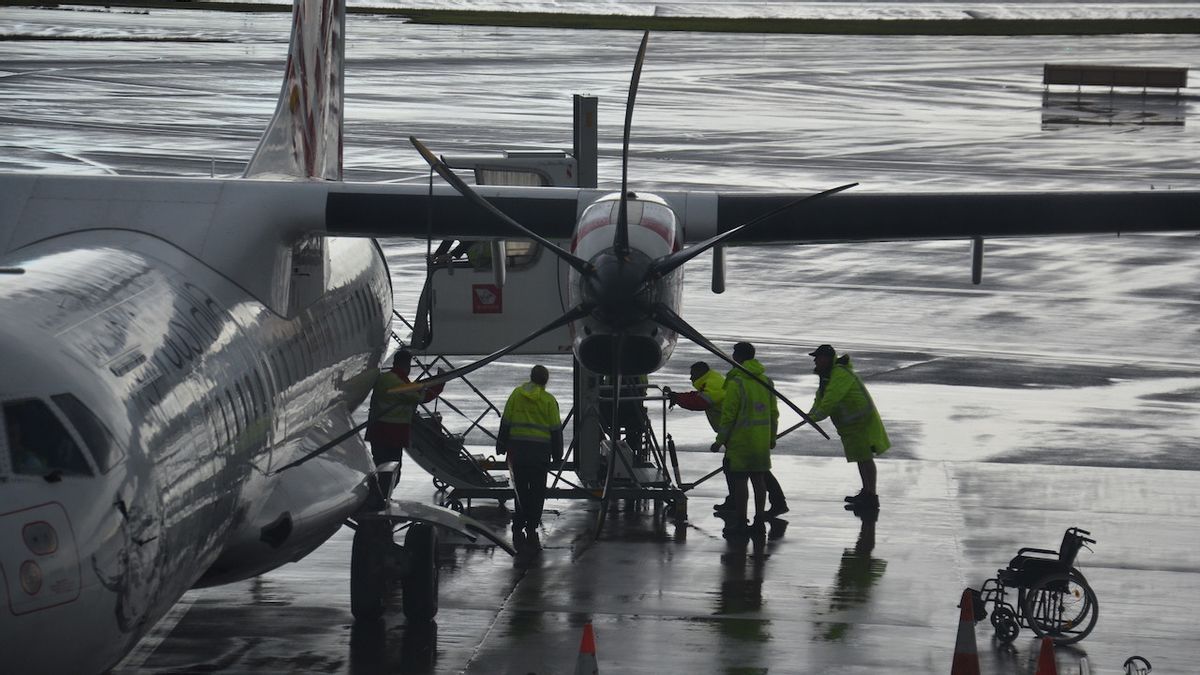JAKARTA - Traveling by airplane is still a challenge for people with disabilities who use wheelchairs. Narrow airline seats can be an ordeal for many wheelchair users.
A recent study by the National Academy of Sciences of the United States, changes in airplanes are possible, allowing wheelchair users to board an airplane
But changes that will encourage some wheelchair users who choose not to fly to take to the skies are possible, according to a new study by the National Academy of Sciences in the US.
This is based on observations of 6,000 passenger aircraft currently operated by US airlines, including the Boeing 747 and Airbus A320.
While it would require significant design and engineering, the report found, it is technically possible to modify the cabins on these aircraft to accommodate private wheelchairs.
Research shows there are no “very formidable” challenges that will prevent private wheelchairs from being allowed on future flights.
On most aircraft, removing the two rows of seats at the front of the cabin near the boarding gate will free up enough space.
Professor Alan Jette, chair of the committee that wrote the report, said their research showed no challenges were 'so formidable' that they would prevent private wheelchairs from being allowed on flights in the future.

"Closing the remaining information gaps, particularly on safety – will allow for more informed public policy decisions that meet the needs of airlines, their personnel and persons with disabilities," he explained citing Euronews Oct. 4.
How will this help non-flying wheelchair users? Unlike on many trains, buses, or cars, airplane passengers today cannot use their personal wheelchair as a seat. For some, this means traveling long distances to visit family, going to a medical appointment or simply traveling abroad is impossible, expensive, or unsafe.
But flying in their own personal wheelchair could revolutionize the travel experience for many wheelchair users.
"If passengers have the ability to fly while sitting in their own personal wheelchair, tailored for their medical and physical needs, they can avoid flying difficulties and can use their own wheelchair at their destination," said Jette.
"Equipping an aircraft with a wheelchair safety system is an intuitively attractive solution for the many difficulties that people with disabilities face and those who cannot walk while flying," he continued.
The report also found that because seats do not take their needs into account, many passengers with disabilities feel uncomfortable during flights.
Some avoid flying altogether for fear of serious injury when transferring to an airplane seat, or fear that their personal wheelchair will be lost or damaged.
Separately, Josh Grisdale, creator of Accessible Japan, has twice suffered wheelchair damage and, although he loves to travel, long flights are especially difficult because of his seat.
"Imagine sitting in one position for 13 hours from Toronto (my hometown) to Tokyo (where I currently live). It's not fun," he explained.
"The discomfort also meant I couldn't sleep on the plane and was exhausted when I arrived."
He said allowing private wheelchairs on planes would take a lot of stress out of flying and bring back many would-be pilots who had stopped traveling.
Grisdale added that concerns over the loss of revenue for airlines from removing seats should not be a deterrent. There may be other solutions and more research needs to be done, he said. Solutions will not be found overnight.
"Most changes start with resistance and often end up being better for everyone in the end," he said.
People with disabilities have strong loyalty to accepting brands, Grisdale points out. There are a lot of people who want to travel in their wheelchairs and this is an underdeveloped market.
"I'm willing to pay for a premium airline with this adaptation rather than saving money for a cheaper, non-adjusted seat."
The English, Chinese, Japanese, Arabic, and French versions are automatically generated by the AI. So there may still be inaccuracies in translating, please always see Indonesian as our main language. (system supported by DigitalSiber.id)













